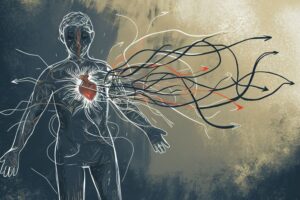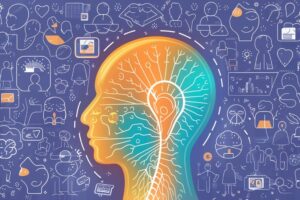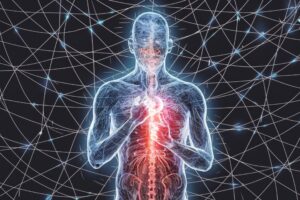How Chronic Pain impacts Your Interpersonal Connections?
Chronic pain is a complex and pervasive condition that affects millions of individuals worldwide, often extending beyond physical discomfort to impact various aspects of daily life. One significant area where chronic pain can have a profound impact is on interpersonal connections.
The challenges posed by chronic pain can strain relationships with family, friends, and colleagues, leading to communication barriers, emotional distress, and changes in social dynamics.
In this article, we will explore the multifaceted ways in which chronic pain influences our interactions with others and provide insights into navigating these challenges while maintaining meaningful and supportive relationships.

Table of Contents
ToggleIntroduction to Chronic Pain and its Prevalence
Chronic pain is a complex and multifaceted health issue that affects millions of individuals worldwide. It is defined as persistent or recurrent pain that lasts for more than three to six months, and it can significantly impact a person’s quality of life. Chronic pain can be caused by a variety of factors, including physical injuries, medical conditions, psychological factors, and lifestyle choices.
The prevalence of chronic pain is staggering, with studies estimating that between 11% to 40% of the global population suffers from chronic pain. This high prevalence highlights the importance of understanding and addressing chronic pain as a public health concern.
The impact of chronic pain on individuals and society as a whole is significant. People living with chronic pain often experience physical and emotional distress, reduced functioning, and impaired quality of life.
Additionally, chronic pain is associated with increased healthcare costs, lost productivity, and decreased overall well-being. Despite the widespread prevalence of chronic pain, it remains a challenging condition to manage effectively.

Healthcare providers, researchers, policymakers, and individuals affected by chronic pain must work together to develop comprehensive strategies for prevention, treatment, and management of chronic pain.
By raising awareness of chronic pain and its implications, we can improve the lives of those living with this debilitating condition and reduce the burden it places on society as a whole.
Read more about “How to Identify Psychopathy through 7 Unique Eye Patterns?”
Impact of Chronic Pain on Relationships
Chronic pain can have a significant impact on relationships, as it can affect both the individual experiencing the pain and the people around them. For the person suffering from chronic pain, their physical and emotional well-being may be compromised, leading to feelings of frustration, irritability, and decreased ability to engage in social activities.
This can strain the relationship with their partner, family members, or friends, as they may struggle to understand or empathize with the individual’s pain.
Additionally, the person with chronic pain may become more dependent on their loved ones for support and caregiving, which can create feelings of burden and resentment within the relationship.
On the other hand, the loved ones of an individual with chronic pain may also experience challenges in maintaining a healthy relationship.
They may feel helpless or overwhelmed by their inability to alleviate the pain of their partner or family member, leading to feelings of stress and anxiety. This can lead to strain in communication, emotional distance, and even resentment towards the person with chronic pain.

Furthermore, the caregiver may experience feelings of guilt or frustration for not being able to fully support their loved one, which can further impact the dynamics of the relationship.
In order to navigate the impact of chronic pain on relationships, it is crucial for both the individual with chronic pain and their loved ones to engage in open and honest communication, seek support from healthcare professionals or therapists, and work together to find ways to maintain a strong and supportive relationship despite the challenges posed by chronic pain.
Read more about “Is Your Partner Self-Obsessed? Take This Narcissistic test”
Psychological Effects of Chronic Pain
Chronic pain can have a profound impact on an individual’s psychological well-being. Research has shown that living with persistent pain can lead to increased levels of anxiety, depression, and stress. Individuals may also experience feelings of hopelessness, helplessness and a decreased sense of self-worth.
The constant physical discomfort and limitations imposed by chronic pain can also lead to social isolation and a decrease in overall quality of life.

Furthermore, the ongoing pain can interfere with cognitive functioning, making it difficult to focus, remember, and make decisions. These psychological effects of chronic pain can create a vicious cycle, as the emotional distress can exacerbate the physical symptoms, leading to a downward spiral of pain and suffering.
Therefore, it is imperative for healthcare providers to address not only the physical symptoms of chronic pain but also the psychological impact to offer thorough and efficient treatment for people experiencing this severe condition.
Read more about “From Panic to Peace: 10 Effective Methods to Calm Anxiety”
Chronic Pain and Mental Health
Chronic pain not only affects physical well-being but also has significant implications for mental health. Individuals experiencing chronic pain often face a myriad of emotional challenges including depression, anxiety, and feelings of hopelessness. Managing chronic pain requires a multifaceted approach that addresses both physical symptoms and psychological effects.
Cognitive behavioral therapy, mindfulness-based stress reduction, and other psychological interventions have shown promising results in improving mental health outcomes for individuals with chronic pain.
Read more about “What are the Hidden Symptoms of Generalized Anxiety Disorder?”
Furthermore, addressing the intersection of chronic pain and mental health is crucial in providing holistic and comprehensive care for patients, highlighting the importance of a biopsychosocial approach in managing chronic pain.

Communication Challenges in Interpersonal Relationships due to Chronic Pain
Individuals experiencing chronic pain may struggle to effectively communicate their needs, limitations, and emotions to their loved ones, leading to misunderstandings and frustration.
The constant physical discomfort and emotional toll of living with chronic pain can impact one’s ability to engage in open and honest communication with those closest to them.
Furthermore, the unpredictability of pain levels and fluctuations in health can create barriers to making plans or commitments, which can strain relationships over time.
It is essential for individuals with chronic pain and their loved ones to cultivate empathy, patience, and effective listening skills in order to navigate these challenges successfully.
Seeking out professional support such as counseling or therapy can also help improve communication dynamics within interpersonal relationships impacted by chronic pain.
Effect of Chronic Pain on Social Activities
Chronic pain can have a significant impact on an individual’s social activities and relationships. The constant discomfort and physical limitations associated with chronic pain can lead to decreased participation in social events and activities. This can lead to feelings of being alone, isolated, and possibly depressed.

The inability to engage in activities that were once enjoyed can also lead to a loss of social connections and a sense of disconnect from friends and family.
Furthermore, the emotional toll of chronic pain can make it difficult for individuals to maintain healthy relationships and communicate effectively with others. Overall, chronic pain can greatly impede one’s ability to engage in social activities and negatively impact their overall quality of life.
How Chronic Pain Affects Family Dynamics?
Chronic pain can have a profound impact on family dynamics, often leading to disruptions in communication, roles and emotional well-being. Individuals living with chronic pain may experience decreased ability to participate in family activities, leading to feelings of isolation and guilt.
This can create tension within the family unit as responsibilities shift and roles are redefined. Additionally, caregivers may experience increased stress and emotional strain as they navigate the challenges of supporting a loved one with chronic pain.

These changes in family dynamics can lead to increased conflict and strain on relationships, as well as potential financial burdens and emotional distress for all involved.
It is crucial for families to communicate openly and seek support in order to navigate the impact of chronic pain on their relationships and overall well-being.
Work and Career Implications of Chronic Pain
Chronic pain can have significant implications on an individual’s work and career. For individuals dealing with chronic pain, the ability to perform daily tasks and meet work demands may be compromised, leading to decreased productivity and potential job loss.
Additionally, the physical and emotional toll of chronic pain can impact one’s mental health and overall well-being, further exacerbating the challenges of maintaining a successful career.
Employers may also struggle to accommodate employees with chronic pain, leading to potential discrimination or lack of support in the workplace.

It is imperative for individuals with chronic pain to seek appropriate medical treatment and support, as well as engage in open communication with their employer in order to address these challenges and navigate the complexities of managing chronic pain in the workplace.
Support Systems and Resources for Individuals with Chronic Pain
Individuals with chronic pain require an intricate support system and access to various resources in order to effectively manage their condition.
This support system may include healthcare providers, such as primary care physicians, pain management specialists, physical therapists, and mental health professionals who can offer a multidisciplinary approach to treatment.
Additionally, individuals may benefit from connecting with support groups or attending therapy sessions to help cope with the emotional and psychological impacts of chronic pain.
Resources such as assistive devices, adaptive equipment, and pain management techniques are essential in helping individuals maintain their independence and quality of life.
It is crucial for individuals with chronic pain to have access to these support systems and resources in order to effectively manage their condition and improve their overall well-being.
Stigma and Misconceptions Surrounding Chronic Pain
Chronic pain is often surrounded by stigma and misconceptions. Many people perceive chronic pain as a purely physical ailment, failing to recognize the psychological and emotional impact it can have on a person’s overall well-being.
This lack of understanding can lead to dismissive attitudes towards those suffering from chronic pain, with some individuals even questioning the validity of their condition.
Additionally, there is a misconception that chronic pain is simply a result of aging or being out of shape, failing to acknowledge the multitude of underlying causes such as autoimmune disorders, nerve damage, or past injuries.
By addressing these misconceptions and educating society on the complexities of chronic pain, we can work towards creating a more supportive and empathetic environment for those living with this challenging condition.
Coping Strategies for Maintaining Healthy Interpersonal Connections
Individuals experiencing chronic pain may face challenges in maintaining healthy interpersonal connections due to the physical and emotional toll of their condition.
Utilizing coping strategies can help alleviate these difficulties and enhance relationships. Communication is key in expressing one’s needs and limitations to friends, family, and colleagues.
Setting boundaries and establishing realistic expectations can prevent misunderstandings and reduce feelings of guilt or frustration.
Additionally, practicing self-care techniques such as mindfulness meditation, deep breathing exercises, or seeking professional counseling can improve one’s emotional well-being and strengthen interpersonal bonds.
By prioritizing open communication, setting boundaries, and engaging in self-care practices, individuals with chronic pain can foster healthy relationships and receive the support they need to navigate their condition effectively.
Conclusion:
In conclusion, it is evident that chronic pain can significantly influence our interpersonal connections, posing unique challenges that require understanding, communication, and support.
By recognizing the impact of chronic pain on relationships and implementing strategies for effective coping and self-care, individuals can navigate these difficulties and cultivate stronger, more resilient connections with those around them.
Through awareness, empathy, and proactive management, it is possible to foster meaningful relationships that thrive despite the presence of chronic pain.
FREQUENTLY ASKED QUESTIONS
1. How does chronic pain affect communication in relationships?
Chronic pain can impact communication in relationships by causing individuals to feel irritable, fatigued, or overwhelmed, leading to difficulties expressing emotions or needs effectively. It may also result in decreased patience and understanding, affecting the overall quality of communication within relationships.
2. What role do support systems play in managing chronic pain and interpersonal connections?
Support systems are vital in managing chronic pain and maintaining healthy interpersonal connections. Family, friends, support groups, and healthcare providers can offer emotional support, practical assistance, and understanding, providing a crucial source of comfort and encouragement for individuals navigating the challenges of chronic pain.
3. How can individuals with chronic pain maintain social activities and relationships despite the limitations imposed by their condition?
Individuals with chronic pain can maintain social activities and relationships by setting realistic boundaries, communicating openly with loved ones about their needs and limitations, and seeking alternative ways to engage socially that accommodate their condition. Prioritizing self-care, seeking professional help, and fostering a supportive network can also aid in sustaining social connections despite the challenges posed by chronic pain.


